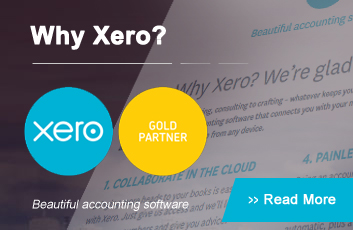
Latest News
While there are tax laws preventing individuals accessing profits or assets of the company in a tax-free manner, mistakes are being made and the Australian Taxation Office (ATO) has had enough. The ATO has launched a new education campaign to raise awareness of these common problems and the serious tax consequences that can arise
It’s common for business owners to utilise company resources for their personal use. The business is often such a part of their life that the line distinguishing ‘the business’ from their life can be blurred.
While there are tax laws preventing individuals accessing profits or assets of the company in a tax-free manner, mistakes are being made and the Australian Taxation Office (ATO) has had enough.
The ATO has launched a new education campaign to raise awareness of these common problems and the serious tax consequences that can arise.
What the tax law requires
Division 7A is an area of the tax law aimed at situations where a private company provides benefits to shareholders or their associates in the form of a loan, payment or by forgiving a debt. It can also apply where a trust has allocated income to a private company but has not actually paid it, and the trust has provided a payment or benefit to the company's shareholder or their associate.
Division 7A was introduced to prevent shareholders accessing company profits or assets without paying the appropriate tax. If triggered, the recipient of the benefit is taken to have received a deemed unfranked dividend for tax purposes and taxed at their marginal tax rate. This unfavourable tax outcome can be prevented by:
- Paying back the amount before the company tax return is due (this is often done by way of a set-off arrangement involving franked dividends); or
- Putting in place a complying loan agreement between the borrower and the company with minimum annual repayments at the benchmark interest rate.
The problem areas
Division 7A is not a new area of the tax law; it has been in place since 1997. Despite this, common problems are occurring. These include:
- Incorrect accounting for the use of company assets by shareholders and their associates. Often, the amounts are not recognised;
- Loans made without complying loan agreements;
- Reborrowing from the private company to make repayments on Division 7A loans;
- The wrong interest rate applied to Division 7A loans (there is a set rate that must be used).
Like life, managing the tax consequences of benefits provided to shareholders and their associates can get messy quickly. Avoiding problems can often come down to a few simple steps:
- Don't pay private expenses from a company account;
- Keep proper records for your company that record and explain all transactions, including payments to and receipts from associated trusts and shareholders and their associates; and
- If the company lends money to shareholders or their associates, make sure it's on the basis of a written agreement with terms that ensure it's treated as a complying loan – so the full loan amount isn't treated as an unfranked dividend.
There are strict deadlines for managing Division 7A problems. For example, if the borrower is planning to repay the loan in full or put a complying loan agreement in place, this needs to be done before the earlier of the due date and actual lodgement date of the company’s tax return for the year the loan was made.
Note: The material and contents provided in this publication are informative in nature only. It is not intended to be advice and you should not act specifically on the basis of this information alone. If expert assistance is required, professional advice should be obtained.














